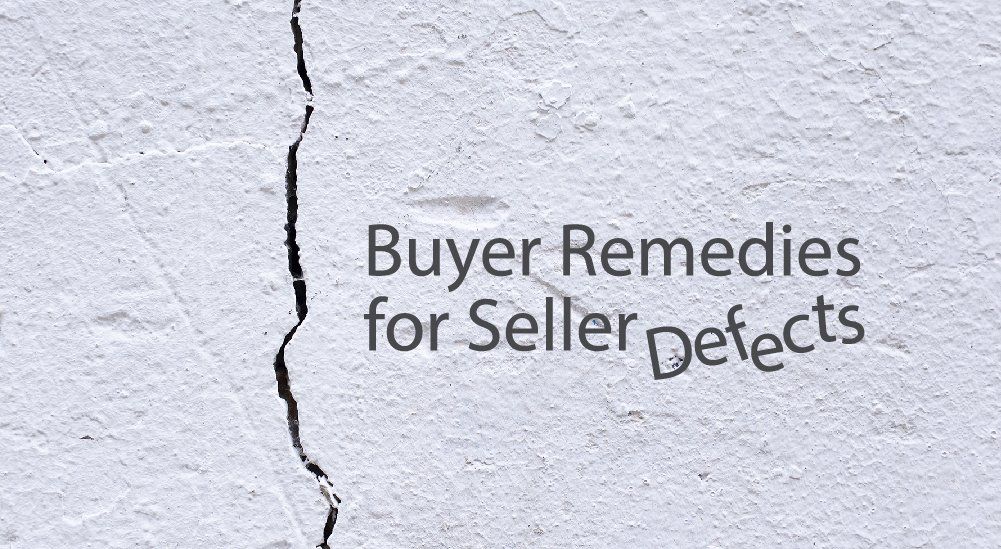Buyer Remedies for Seller Defects in Illinois

For many individuals, purchasing a home is one of the biggest emotional and financial decision that they will make in their lifetime. Thus, homebuyers want to ensure that their home will be safe, functional, and free of material defects… This is what the inspection period is for, right? But, let’s say that upon purchasing and living in a home for a period of time, a buyer finds mold in a remote part of the home or a leak that seems unmanageable. This is not what the buyer bargained for, and there may be remedies available to them, especially if the seller had knowledge of these issues and failed to disclose them.
Under the Illinois Residential Real Property Disclosure Act (“Act”), a seller is required to disclose any material defects with the home. A material defect is defined as a condition that would have a substantial adverse effect on the value of the property or would significantly impair the health or safety of future occupants of the property. Examples of material defects include unsafe conditions, environmental issues, or defects in structure and systems.
If a seller fails to disclose a defect in the home that was known or should have been known to the seller, the seller can be held liable to the buyer. Typically, an Illinois contract for the purchase of real estate will explicitly outline liabilities to which sellers are subjected. It is critical for a buyer to review their purchase contract closely with an attorney to determine what remedies they are entitled to from the seller, should any defects become apparent following closing. The Act also provides a buyer with the remedy of actual damages, which is calculated as the cost of repairs, and any proceedings required to recover these costs, including attorneys’ fees and costs.
The best way for a buyer to avoid attorneys’ fees and costs, as well as the emotional turmoil and stress of post-closing litigation, is to actively investigate during the attorney review period (a contractually agreed upon term within which attorneys can request modifications to the real estate contract) with an experienced real estate attorney and licensed inspector. Specifically, a buyer should discuss with their attorney any obligations the seller has, such as assurances that structures/systems in the home are in working condition, or carefully reviewing the inspection report to determine any “material” defects on the property. The contract may also place limitations on how a buyer may seek remedies against the seller, terms which an attorney can help a buyer navigate. A buyer’s attorney will then be able to request repairs or compensation for material defects or make requests for assurances of certain aspects of the home. While the hope is to avoid litigation altogether, should it be necessary following closing, the attorney review process will provide the buyer with increased evidence and protection heading into litigation.
If you are a homebuyer and are worried about defects on a property, or if you recently purchased a home and feel the seller did not disclose material defects, please do not hesitate to contact me at 847-705-7555 or vpaton@lavellelaw.com and find out how we can help.
More News & Resources
Lavelle Law News and Events











